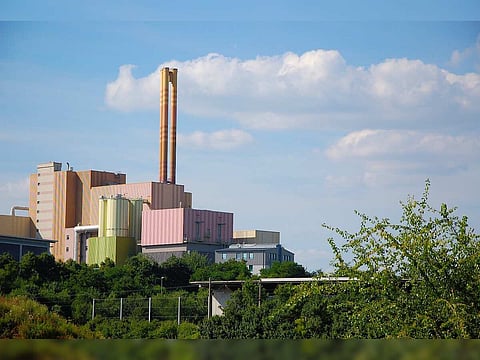

NEW DELHI: In a significant win for the people of Gujarat, the World Bank has finally decided not to fund multiple waste-to-energy (WTE) incineration projects in major cities in the state. Sustained community protest against four such projects and the possible financial unviability were the major reasons behind the cancellation.
Various studies show that WTE’s detrimental impact on people’s health and the environment more than outweighs its advantages. WTE plants produce a dangerous level of particulate matter, especially PM2.5, by burning solid waste, including plastics, which pollute the air and degrade the environment.
The International Finance Corporation (IFC), the private lending arm of the World Bank, formally conveyed its decision not to invest in a private company, Abellon Clean Energy Limited (ACEL), in setting up WTE plants in Gujarat. ACEL had proposed building four WTEs in Rajkot, Vadodara, Ahmedabad and Jamnagar to burn around 3,750 tons of unsegregated Municipal Solid Waste (MSW) daily.
The IFC was considering a USD 40 million loan to help ACEL build four WTE plants. However, it observed massive on-ground resistance against the projects, as locals were apprehensive of severe air pollution in the surrounding areas. Concerted protest forced the IFC to put off its decision on the project twice in 2024.
“Finally, we received confirmation from IFC that it is not investing in the project,” said Ker Jayendrasinh, an environmental activist supporting the local communities’ struggle in Jamnagar.
How it began
Environmental activists and members of the local community filed complaints with the Gujarat Pollution Control Board, the Municipal Commissioner and the District Collector but no action was taken.
When ACEL sought IFC loan, the affected communities wrote to the World Bank's Executive Directors on June 26, 2024, raising objections to the proposed funding. They also raised complaints with IFC’s Stakeholder Grievance Response Team, met with the US Treasury, and shared with them the project's projected impact.
The protesters also launched an international campaign following which 174 networks, civil society organisations, activists, and communities from across the globe strongly urged the World Bank’s Board of Directors to reject the loan.
Several studies have shown that WTE can have negative impacts, such as air and water pollution, health problems, climate impacts, and undermine sustainable waste management practices. “The communities demand the scrapping of the project as it violated IFC's own performance standards in addition to breaking Indian laws,” said Asmita Chavda, who was slapped with several FIRs for protesting against the WTE plants in Ahmedabad.
IFC’s withdrawal from the project came as a significant relief to the communities. “Still, nothing short of a complete shutdown of the plant will bring relief to the affected communities,” said Jayendrasinh.
Studies against WTE
A CSIR-National Environmental Engineering Research Institute report submitted to the National Green Tribunal, warned against WTE technology and its negative health impacts on the community and the environment.
Another study by the Indian Institute of Technology, Madras pointed out that burning plastic waste emits highly toxic chemicals called ‘dioxins’, which can accumulate in the food chain, causing severe problems for the reproduction and the immune systems.
Both studies underscored that WTE plants contribute to Delhi’s dangerous level of PM2.5 in air pollution. At the peak of air pollution in Delhi’s October and November 2024, over 100 civil society organisations, waste-collectors, residents and individuals urged the Delhi’s government to scrap a proposal to burn 100% of Delhi waste under WTE initiatives.
Financial unviability and way out
Most incinerators are loss-making enterprises due to the low calorific value of the waste, which generates less energy.
ACEL's financial analysis reveals piled-up losses and debts of just one operational WTE incineration plant in Jamnagar, Gujarat.
Its analysis by environmental activists showed that the company's net profit plummeted from approximately `11.1 crore in 2021, to a loss of `19 crore in 2023. Earnings Before Interest, Taxes, and Amortization (EBITDA) fell from `3 crore to a negative of `16 crore.
The company was also unable to service its loan interest. In 2022, the shortfall was 1.5 times the amount needed to pay interest, which by 2023, grew 14.11 times the interest amount.
The ACEL is currently funded by public companies such as the Power Finance Corporation (Rs 195 crore) and the Indian Renewable Energy Development Agency (Rs 133 crore). “Given WTE’s financial unviability, steps need to be taken to recover the loan amount from the company and not fund new WTE incinerators in the future,” said Jay Vyas, an activist in Vadodara who has been campaigning against WTEs.
Experts say the focus needs to shift towards investing in environmentally sustainable and less expensive yet effective incinerators than WTE technology.
“Restricting the production of single-use plastics, lower consumption, source segregation, and decentralised waste processing are the ways forward,” said Vyas.